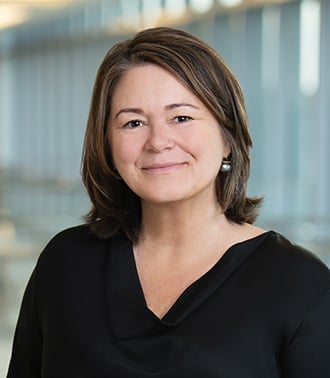Amy Ryan represents philanthropists, private foundations, public charities, medical research organizations and companies in structuring and implementing creative solutions to address some of the world's most complex health challenges. Amy is sought after for her unique expertise across the full range of venture philanthropy and academic research and her in-depth knowledge of market practices and university policies, in particular those relating to protection, management, and commercialization of intellectual property. She frequently advises on complex multi-party transactions, impact investing, university and academic research collaborations, intellectual property licensing, conflicts of interest and major gifts. Amy, in collaboration with her colleagues in the tax-exempt practice, work to employ compliant, innovative structures and vehicles to maximize the client's charitable mission. She is known for her creativity, commitment to her clients and successful implementation of multi-party medical research consortia that are moving the needle on medical research in fields from Type 1 diabetes to cancer immunotherapy. She has been instrumental in structuring, negotiating and documenting some of the largest medical venture philanthropy transactions in recent years.
Amy also advises the advisors, working with philanthropic advisors to structure giving programs to develop and implement transformative giving strategies and with financial advisors to families and organizations aiming to catalyze collaborative philanthropy for real-world, measurable impact.
Experience
- The Parker Institute for Cancer Immunotherapy (PICI) in structuring, negotiating and documenting an approximately US$300 million research consortium in affiliation with six U.S. academic and medical research institutions. The PICI model establishes a collaborative approach to centralize tech transfer and commercialization, and is designed to remove barriers, encourage collaboration and turn ideas into real-world cancer treatments.
- Medical Research Organization in its US$600 million founding of a research hub in San Francisco in affiliation with one private and two public universities, and its US$250 million founding of a research hub in the mid-west with one public and two private universities. The San Francisco research institution focuses on quantitative cell science, infectious disease, and technology platforms; the Chicago institution will create technologies to measure human biology and study inflammation to understand disease and discover new therapies.
- Palo Alto Research Institute in its establishment of a US$650 million medical research organization aimed at advancing scientific research in complex diseases, including neurodegeneration, cancer and immune dysfunction. The Institute fully funds investigators who may have faculty appointments at affiliated universities; establishes technology centers that focus on machine learning, genome engineering and cellular and animal models of disease; and has a translational infrastructure that accelerates the advancement of new biotechnologies to maximize patient impact.
- Funders of the largest private philanthropic investment in bipolar disorder in history, in funding streams totaling US$150 million that include discovery grants at over a dozen academic and medical research institutions; a multi-site omics study; a large-scale genetic sequencing study to understand the underlying genetic mechanisms of bipolar disorder; and the largest ever longitudinal cohort study of bipolar disorder patients.
- The Gilbert Family Foundation in multiple funding streams to support research into the diagnosis, prevention, treatment and cure of neurofibromatosis; the three funding initiatives total in excess of US$50 million with over a dozen grantees, and support multi-disciplinary academic research teams in the vision restoration, gene therapy, and brain tumor areas.
- The Mark Foundation for Cancer Research (U.S.) in multiple initiatives to fund groundbreaking science across all cancer types, from grants to support individual investigators and multi-disciplinary teams, to venture investment in early stage companies.
- Anonymous funder of a US$85 million gift to establish a comprehensive brain cancer program at a national children's hospital.
- Philanthropic Foundation in a substantial grant to a for-profit biotechnology company in support of a viral diagnostic development program which developed a COVID-19 testing platform that proved critical during the pandemic.
- The Sean N. Parker Foundation in its US$25 million establishment of the Sean N. Parker Center for Allergy & Research at Stanford University.
- The Lieber Institute for Brain Development in its formation and affiliation with Johns Hopkins University; developed intellectual property, publications, and conflicts policies for the institute; advised on licenses and collaborations with other researchers and private companies; and counseled on material transfer arrangements to establish the world's largest repository of post-mortem human brains for the study of neuropsychiatric disorders.
- JDRF in establishing an intellectual property policy applicable to a consortium of research institutions receiving JDRF grant funding to support the development of the so-called "artificial pancreas." Research funded through this consortium has resulted thus far in four FDA-approved closed loop insulin dosing systems that automatically adjust insulin delivery in response to blood glucose levels. Industry experts have said that foundation involvement in the commercialization and approval process took at least five years off the development timeline.
Perspectives
Recognition
“Recommended Lawyer” U.S. Taxes: Non-Contentious (2021-2022)
Credentials
Education
- J.D., Georgetown University Law Center, 1999, cum laude
- B.A., University of Virginia, 1988
Admissions
- District of Columbia
Activities
- Member, Audit & Risk Committee, Breakthrough T1D (formerly JDRF), 2024
- JDRF Research Committee of the International Board of Directors: Volunteer member of the Research Committee of JDRF which reviews and approves the organization’s long-term research strategy, its research priority areas, and the overall focus and direction of its research program. (2022-2024)

